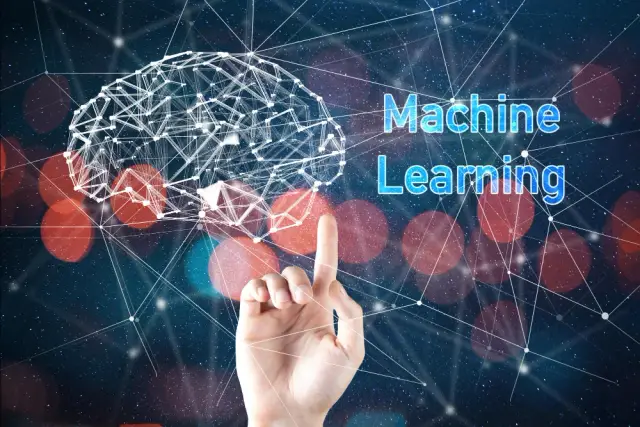How AI-Powered Telemedicine Platforms Are Transforming Healthcare in 2024
Discover how AI-driven telemedicine platforms are revolutionizing healthcare delivery, enhancing patient care, optimizing efficiency in 2024 with cutting-edge technologies.

Introduction to AI-Powered Telemedicine
As technology continues to evolve, the healthcare industry is undergoing a significant transformation. One of the most notable advancements in recent years is the rise of AI-powered telemedicine. This innovative approach combines the power of artificial intelligence with the convenience of remote healthcare services, offering a new horizon in medical care.
Telemedicine, at its core, allows patients and healthcare providers to connect through digital channels, removing geographical barriers and facilitating access to medical care. The integration of artificial intelligence into this model adds an extra layer of efficiency and precision, enhancing diagnostics, patient monitoring, and overall healthcare delivery.
Understanding the nuances of AI-powered telemedicine requires delving into the technologies that power these platforms. AI technologies such as machine learning, deep learning, natural language processing, and image recognition work in concert to analyze data efficiently and provide actionable insights. These tools help in diagnosing illnesses, predicting treatment outcomes, and even suggesting preventative care strategies.
In 2024, AI-powered telemedicine is not just an emerging trend but a well-established reality that is transforming how healthcare providers interact with patients. By minimizing the need for in-person visits, these platforms offer convenience and flexibility without compromising the quality of care. Patients can access healthcare services from the comfort of their homes while receiving personalized medical advice tailored to their unique health profiles.
Healthcare providers, too, benefit immensely from this transformation. By leveraging AI-powered telemedicine, they can optimize their workflows, manage higher patient loads, and utilize medical data more effectively to deliver better outcomes. This dual benefit – improved patient care and enhanced operational efficiency – showcases the potential of artificial intelligence in reshaping the healthcare sector.
As we delve deeper into the nuances of AI-powered telemedicine in the coming sections, we'll explore the technological advancements driving it, its impact on patient care, the improvements in healthcare efficiency, and the challenges and solutions associated with its implementation. This comprehensive examination is critical to understanding the full potential and implications of AI-driven telemedicine in today's healthcare landscape.
Technological Advancements Enhancing Telemedicine
The rapid development of technology has paved the way for telemedicine to become an indispensable aspect of modern healthcare. The integration of artificial intelligence (AI) into telemedicine platforms is one of the most significant advancements, providing improved services and accessibility both for healthcare providers and patients. Several key technological innovations are driving this transformation, enabling telemedicine to reach new heights in efficiency and effectiveness.
Machine Learning and Predictive Analysis
Machine learning, a subset of AI, plays a crucial role in processing vast amounts of medical data and providing accurate predictive analysis. By harnessing machine learning algorithms, telemedicine platforms can detect patterns and predict future health issues, leading to more precise diagnostics. This technological advancement enables healthcare providers to offer personalized treatment plans, ultimately enhancing patient outcomes.

Natural Language Processing (NLP)
Natural language processing is another significant AI advancement revolutionizing telemedicine. NLP enables platforms to better understand and process patient queries, thereby enhancing virtual consultations. With voice recognition technologies and chatbots powered by NLP, medical professionals can provide quick, accurate, and efficient responses to patient inquiries. This leads to a more seamless interaction between patients and healthcare providers, reducing the need for face-to-face visits and enabling care continuity.
Remote Monitoring Devices
Remote monitoring devices are a vital component of AI-powered telemedicine platforms. These devices allow for the continuous collection and analysis of patient health metrics such as heart rate, blood pressure, and glucose levels. IoT-enabled wearable devices transmit this data back to healthcare providers, who can then make informed decisions about patient care. Such advancements not only improve response times but also enable preventative care by detecting potential health issues early.
Data Analytics and Integration
AI-powered data analytics is another technological force enhancing telemedicine. With the ability to analyze large datasets effectively, telemedicine platforms can provide healthcare providers with insightful information critical to decision-making. Data analytics allows for the integration of diverse data types, offering holistic views of patient health and enabling more informed diagnoses and treatment plans. Moreover, the seamless integration of data analytics fosters collaboration among different healthcare stakeholders, further enhancing patient outcomes.
Enhanced Cybersecurity Measures
As telemedicine platforms evolve, so does the need for enhanced cybersecurity measures to protect sensitive patient data. Innovations in AI-driven security protocols ensure data privacy by detecting, mitigating, and preventing cybersecurity threats. With robust encryption techniques and advanced threat detection methods powered by AI, patients and healthcare providers can have greater confidence in the security of telemedicine platforms. This trust is vital, as it encourages the adoption and broad utilization of telemedicine services.
These technological advancements are not only enhancing the efficiency of telemedicine platforms but are also expanding the reach and quality of healthcare services. By integrating cutting-edge tools and AI capabilities, telemedicine continues to break new ground in the ever-evolving healthcare industry.
AI's Impact on Patient Care
In recent years, artificial intelligence (AI) has emerged as a pivotal technology in transforming patient care within telemedicine platforms. As healthcare systems worldwide grapple with increasing demand and limited resources, AI provides innovative solutions that enhance diagnostic accuracy, optimize treatment plans, and personalize patient interactions.
Enhanced Diagnostic Precision
One of the most significant impacts AI has on patient care is its ability to enhance diagnostic precision. AI algorithms can analyze vast amounts of data quickly and accurately, identifying patterns and anomalies that may elude human practitioners. By using machine learning models trained on thousands of medical records, AI-driven systems can offer real-time diagnostic assistance, leading to faster and more accurate decisions.
For instance, AI applications in medical imaging can interpret images such as X-rays and MRIs, highlighting areas of concern and aiding radiologists in their assessments. This technology reduces the chances of human error and enhances the reliability of diagnostic outcomes, leading to more confident and timely interventions.
Personalized Treatment Plans
AI revolutionizes patient care by enabling the creation of personalized treatment plans. By analyzing a patient's genetic data, medical history, lifestyle, and environmental factors, AI systems can predict individual responses to various treatments. As a result, healthcare providers can tailor their approaches to each patient's unique needs.
This personalization extends to medication management, where AI systems predict adverse drug reactions and recommend adjustments to dosages or alternative therapies. This level of customization ensures that patients receive the most effective care while minimizing the risk of negative side effects.
Continuous Health Monitoring
Continuous health monitoring is another area where AI is making a significant difference in patient care. Wearable devices and smart IoT technologies collect and transmit health data in real time, providing AI algorithms with a constant stream of information about a patient's condition. These AI systems analyze the data to detect early warning signs of potential health issues, enabling proactive interventions before symptoms escalate.
For chronic condition management, AI-driven telemedicine platforms offer real-time insights into a patient’s health status, allowing healthcare providers to adjust treatment plans as necessary. This real-time feedback loop ensures that patients receive care tailored to their current needs and helps in preventing complications.
Improving Patient-Doctor Interaction
AI also enhances patient-doctor interaction, a crucial aspect of effective healthcare. Automated chatbots and virtual assistants are integrated into telemedicine platforms to handle routine inquiries, schedule appointments, and provide basic health advice. This integration allows healthcare professionals to focus on more complex cases, improving overall efficiency and quality of service.
Moreover, AI tools can summarize patient interactions, maintain comprehensive records, and highlight important information for doctors, reducing the administrative burden and facilitating more meaningful consultations. Ultimately, AI enhances communication channels and fosters a more supportive environment for both patients and healthcare providers.
Overall, the integration of AI into telemedicine heralds a new era of patient care, marked by precision, personalization, and proactive management. As AI technology continues to advance, its transformative impact on patient care in telemedicine platforms is poised to grow, leading to improved health outcomes and a more accessible healthcare system.
Telemedicine's Role in Healthcare Efficiency
The rapid evolution of telemedicine has ushered in a new era of efficiency within healthcare systems. By leveraging AI-powered platforms, the healthcare industry is addressing longstanding challenges around resources, costs, and patient engagement. In 2024, these advancements are transforming healthcare delivery more effectively than ever, demonstrating the potential for telemedicine to redefine how care is provided.
Reducing Waiting Times
Traditionally, healthcare systems have struggled with long waiting times for appointments and treatments. AI-driven telemedicine platforms are eliminating these delays by offering immediate virtual consultations. Patients can connect with healthcare professionals from the comfort of their homes, effectively bypassing congested waiting rooms and lengthy appointment scheduling processes. The ability to connect instantly not only enhances patient satisfaction but also encourages individuals to seek medical attention more promptly, leading to better health outcomes.
Streamlined Appointment Scheduling
Telemedicine platforms equipped with AI capabilities are revolutionizing appointment scheduling. Intelligent algorithms can predict peak times, distribute patient loads efficiently, and allocate resources dynamically to match demand. This ensures that staffing levels are optimized and reduces the risk of clinician burnout. The result is a healthcare system that runs smoother and offers patients more flexibility in choosing appointment times that fit their schedules.
Improved Record Management and Accessibility
Efficient management of patient records is fundamental to quality healthcare. AI-powered telemedicine solutions streamline this process by automatically organizing and updating patient data. With secure cloud storage, healthcare providers have real-time access to comprehensive patient histories, leading to more informed decision-making. Moreover, patients can access their medical records easily, fostering transparency and empowering them to engage in their health management.
Optimized Resource Allocation
Effective resource allocation is vital to maintaining healthcare system efficiency. AI can analyze patterns and predict resource needs, ensuring that medical facilities are not overwhelmed unexpectedly. Telemedicine platforms enable remote diagnostics and monitoring, reducing the necessity for in-person visits and permitting healthcare professionals to focus on critical cases that require their immediate attention. This shift not only optimizes resources but also delivers considerable cost savings for both healthcare providers and patients.
Enhanced Coordination Among Healthcare Teams
AI-powered telemedicine promotes better coordination among healthcare professionals by providing a central platform for communication and collaboration. Medical teams can share information seamlessly, discuss patient cases, and collaborate on treatment plans, culminating in comprehensive and cohesive care. This integrated approach reduces redundant testing and ensures that all healthcare providers involved in a patient’s care are on the same page, ultimately leading to more efficient and effective treatments.
In conclusion, AI-powered telemedicine platforms are instrumental in enhancing healthcare efficiency. By addressing issues related to wait times, resource allocation, and communication, these platforms are paving the way for a more responsive and patient-centric healthcare system.
Challenges & Solutions in AI-Powered Telemedicine
The integration of AI with telemedicine platforms has been transformative, but it is not without hurdles. Identifying and tackling the challenges associated with AI-powered telemedicine is crucial for its continued success and efficiency in the healthcare domain.
Data Privacy and Security
One of the biggest challenges in deploying AI-powered telemedicine platforms is ensuring data privacy and security. Medical data is sensitive and requires stringent protection protocols to prevent unauthorized access and data breaches. The challenge lies not only in securing the data but also in maintaining trust with users who might be hesitant to share personal information digitally.
Solutions: Implementing robust encryption standards and comprehensive cybersecurity measures is imperative. Additionally, telemedicine platforms must adhere to regulatory frameworks, such as HIPAA in the United States, which set guidelines for the secure handling and sharing of medical information. AI algorithms can also be designed to anonymize data, ensuring patient confidentiality.

Bias in AI Algorithms
AI systems are often criticized for reflecting biases present in the datasets they are trained on. In healthcare, this can lead to skewed diagnostic outcomes and treatment plans that disproportionately affect certain groups.
Solutions: To mitigate bias, diverse datasets that are representative of the population should train AI models. Continuous monitoring and auditing of AI systems can help identify and address bias. Collaborative efforts with experts from various sectors can also enhance the fairness and inclusivity of AI applications in telemedicine.
Interoperability Issues
Integrating AI with existing healthcare infrastructure poses interoperability challenges. Many healthcare systems rely on legacy software that is not compatible with modern AI applications, making it difficult to seamlessly exchange information.
Solutions: Developing standardized protocols and APIs can facilitate better integration across disparate systems.
Ethical Considerations
AI-powered telemedicine also presents ethical concerns related to patient autonomy, informed consent, and the potential for AI to replace human judgment in critical healthcare decisions.
Solutions: Establishing clear ethical guidelines and involving healthcare professionals in the AI decision-making process can uphold ethical standards. Patients should be informed about how AI is used in their care, and they should have the option to choose whether AI-based recommendations should be a part of their treatment plans.
Technical Complexity and Cost
The technical sophistication of AI systems, coupled with the cost of implementing and maintaining them, presents challenges for many healthcare providers.
Solutions: Platforms like AppMaster simplify the process by offering no-code tools that reduce the need for extensive technical expertise, thereby lowering costs. Moreover, cloud-based solutions can help scale AI applications more affordably, avoiding the need for significant on-premises infrastructure investments.
As AI-powered telemedicine continues to evolve, addressing these challenges with innovative solutions will be key to unlocking its full potential in transforming healthcare delivery. By overcoming these obstacles, telemedicine can become more accessible, equitable, and effective in meeting the needs of patients and healthcare professionals alike.
The Future of Telemedicine and AI
As we forge ahead into the future, the potential for AI-powered telemedicine platforms to revolutionize healthcare becomes increasingly apparent. The amalgamation of artificial intelligence with telemedicine heralds a new era of healthcare delivery, marked by enhanced accessibility, personalization, and efficiency. The ongoing advancements in AI and telecommunication technologies promise to reshape the way we perceive and interact with healthcare services.
Increased Accessibility and Inclusivity
The integration of AI into telemedicine is set to break down geographical barriers, extending healthcare services to even the most remote regions. With smartphones and internet access becoming ubiquitous, individuals worldwide will have the ability to connect with healthcare professionals instantaneously. In addition, AI-driven solutions can help surmount language and communication barriers, ensuring inclusivity in healthcare delivery across diverse populations.
Personalized and Predictive Care
One of the foremost promises of AI in telemedicine is the advent of personalized and predictive care models. By analyzing vast amounts of patient data, AI algorithms can pinpoint trends, predict potential health issues, and provide tailored treatment plans. This level of personalization was previously unattainable in traditional healthcare settings and can lead to improved patient outcomes and reduced instances of chronic illness.
Seamless Integration with IoT
The future of telemedicine is closely intertwined with the development of the Internet of Things (IoT). Wearable health monitoring devices integrated with AI will enable continuous health tracking, providing both patients and healthcare providers with real-time insights. Such devices can automatically record vital signs, detect anomalies, and alert medical professionals in case of emergencies, ensuring timely interventions.
Enhanced Decision Support Systems
Clinical decision support systems powered by AI in telemedicine will play a pivotal role in aiding healthcare professionals. By processing patient data and correlating it with existing medical literature, these systems can offer evidence-based treatment recommendations, reducing diagnostic errors and enhancing the overall quality of care.
Greater Efficiency and Cost Reduction
The automation capabilities of AI present an opportunity for significant cost reduction in health services. By minimizing the need for physical consultations and optimizing resource allocation, telemedicine can substantially decrease healthcare costs. Moreover, the reduction in unnecessary diagnostic tests and procedures can further alleviate the financial burden on healthcare systems.
Challenges and Ethical Considerations
While the future of AI-powered telemedicine appears promising, it is not devoid of challenges. Ethical concerns surrounding data privacy, consent, and the potential for algorithmic biases must be carefully managed. Robust governance frameworks and transparent AI models are crucial for fostering trust among users and ensuring the responsible deployment of AI technologies in healthcare.
In summary, the fusion of AI and telemedicine is charting a course towards more advanced, equitable, and efficient healthcare services. As we move further into the digital era, embracing these technologies will be paramount in addressing global healthcare challenges and enhancing the quality of life for individuals worldwide.
FAQ
AI-powered telemedicine platforms leverage artificial intelligence technologies to provide remote medical consultations and services. These platforms use AI for diagnostics, monitoring, and enhancing patient-doctor interactions.
AI is transforming telemedicine by enabling accurate diagnostics, personalized treatment plans, and real-time patient monitoring. It enhances service delivery and patient outcomes.
Technological advancements like machine learning, natural language processing, and data analytics play a critical role in advancing telemedicine by improving accuracy and efficiency.
AI improves patient care by providing personalized medical advice, monitoring health indicators continuously, and offering more precise diagnostic results, leading to better treatment outcomes.
AI-powered telemedicine can reduce waiting times, streamline appointment scheduling, improve record management, and optimize healthcare resource allocation.
Challenges include data privacy concerns, ethical considerations, and adapting to technological complexity. Addressing these is crucial for successful implementation.
Implementing robust security measures, robust encryption, and strict data handling protocols can help ensure data privacy in AI-powered telemedicine.
AppMaster assists in building custom telemedicine solutions rapidly, employing its no-code platform to create scalable and interactive applications with ease.
By improving diagnostic accuracy, reducing unnecessary treatments, and enhancing preventive care, AI-powered telemedicine platforms can potentially lower healthcare costs.
The future of AI in telemedicine looks promising with further advancements expected in personalized care, integration with IoT devices, and greater accessibility of services.





